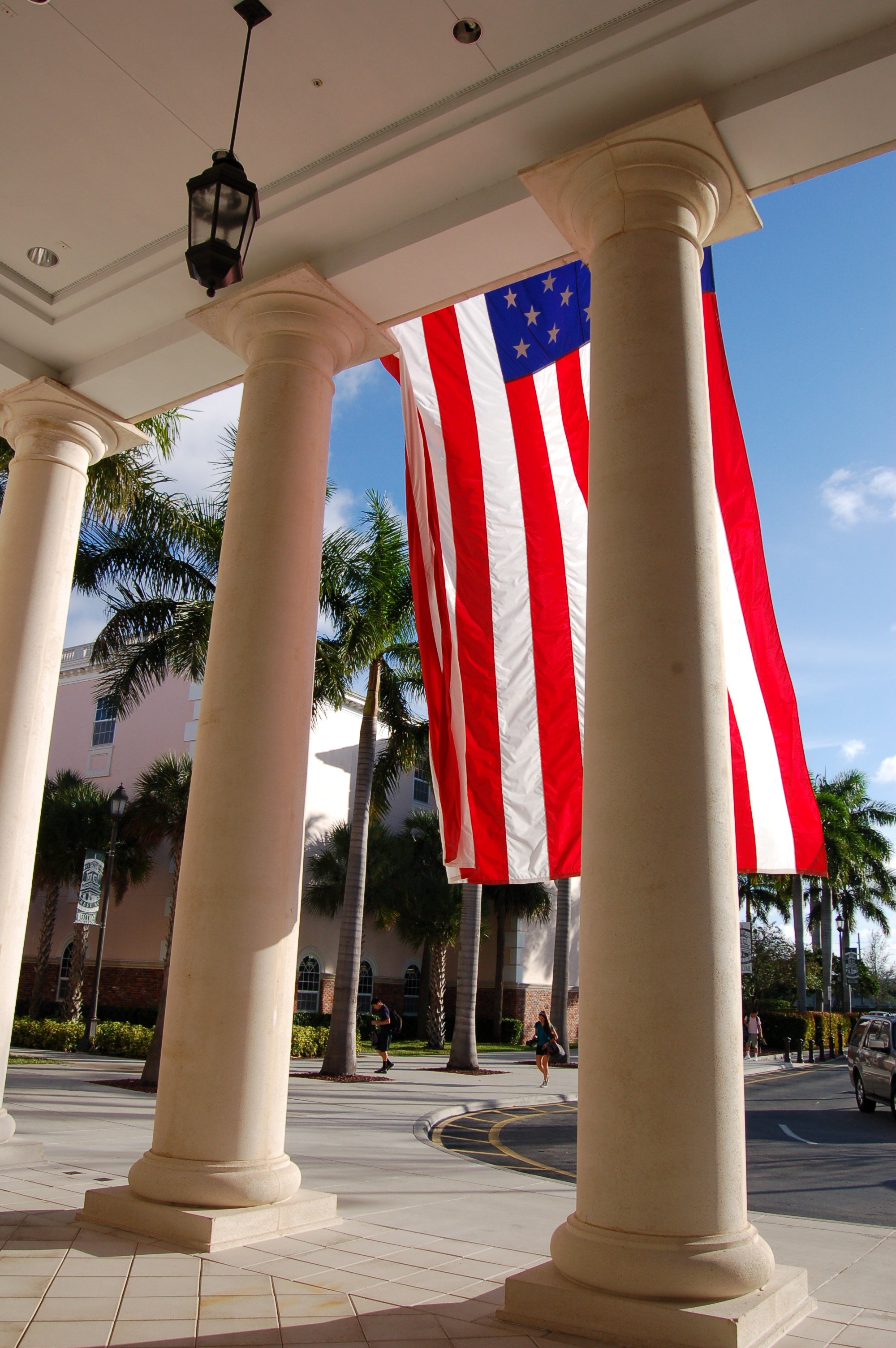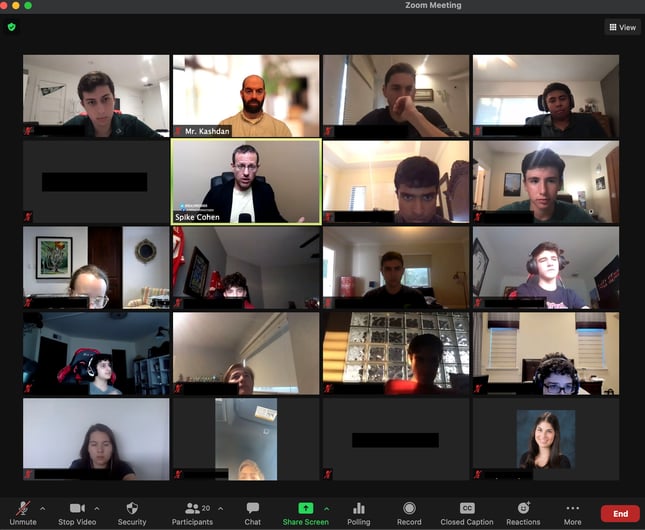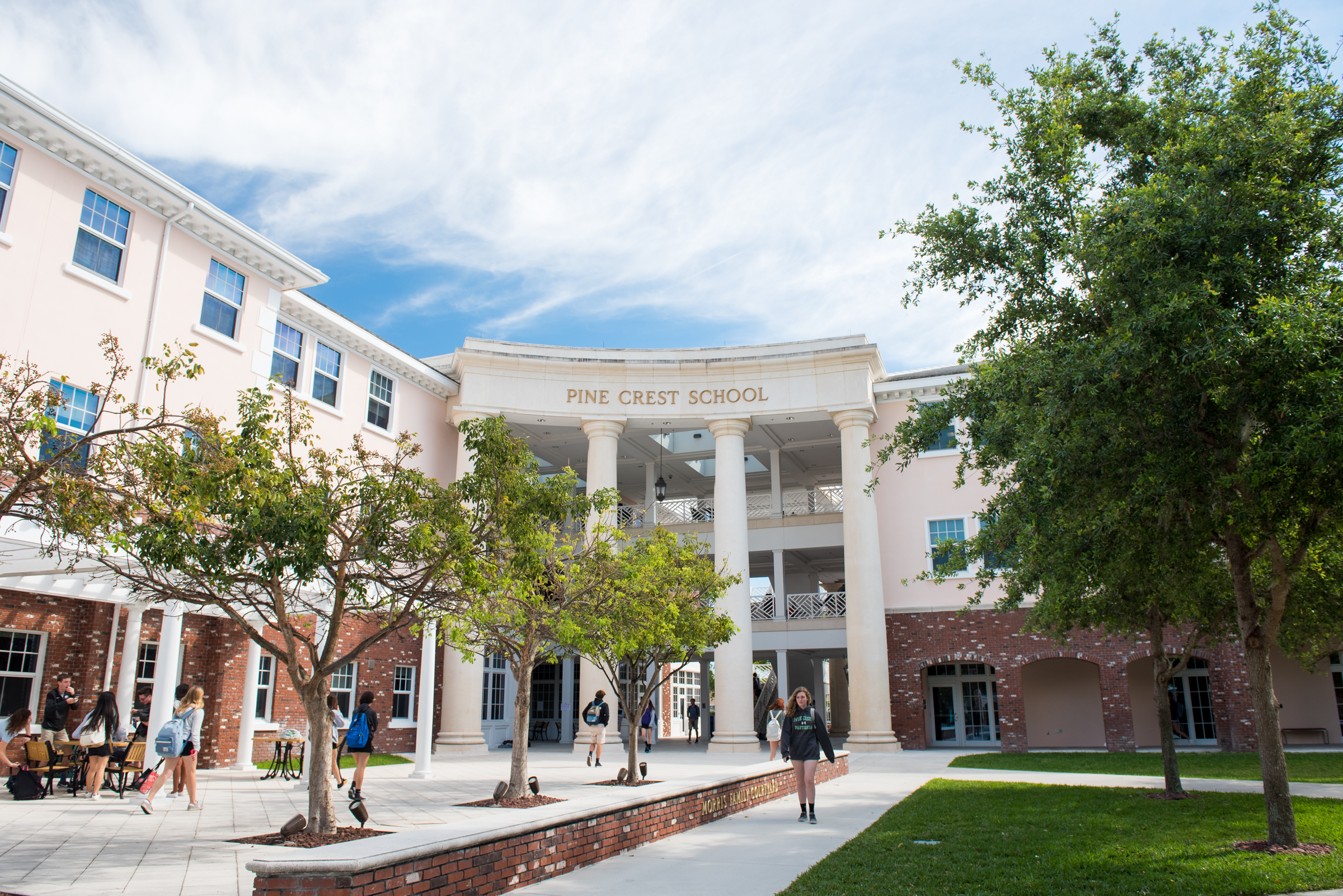In the early afternoon of January 6, 2021, students in Mrs. Trish Everett’s Post-Advanced Placement (AP) Political Science Seminar cast C-SPAN to the smartboard and began watching the joint session in the U.S. House of Representatives chamber. As lawmakers made their way through a count of Electoral College votes in alphabetical order by state, students were enthusiastic about experiencing their classroom lessons coming to life.
“We listened to Electoral College votes from Alabama and Alaska, and then as they called for the Arizona votes, the bell rang to end class,” said Mrs. Everett, a Pine Crest Upper School Social Science instructor who also teaches AP Psychology and serves on the National Constitution Center Teacher Advisory Board and the Center for Civic Education National Advisory Council. “A few students lingered to watch through the passing period. Shortly after they left the classroom, the C-SPAN feed cut out as members of Congress left the chamber to debate and vote on the challenges to the Arizona ballots.”
Mrs. Everett recognizes that “this is certainly a challenging time to be teaching government, but as civics educators, we have an opportunity to harness events from the past several months as real-life examples to help connect students to the material and inspire deeper thinking.”
Pine Crest faculty lead their students in inquiry-based learning; effective teaching focuses on the why and how, and not just the what. For example, to study the Electoral College voting process the next day, Mrs. Everett began by reviewing how to talk about controversial events, including addressing the power of words and precision of language. She asked her students, “How should we refer to the people involved in this particular event?” She then asked essential questions such as:
- “Referring to our country’s founding/governing documents, what do the Constitution, Federalist Papers, and state and federal laws say about assembly, trespassing, Electoral College and voting procedures?”
- “For historical context, what can we learn from past examples?”
- “Regarding media literacy, what are valid sources for critical analysis?”
- “How do recent events intersect with such founding principles as state vs. national powers, democratic engagement, rule of law, separation of powers, and limited government?”
“After the events on January 6, our class had a very thorough and educated discussion that was led by the students and guided by Mrs. Everett,” said Ari Burns ’21. “She did a great job of helping set classroom guidelines at the beginning of the year, which allowed us to have such a productive discussion. Our class dissected individual aspects of the events that unfolded, which led to a complex discussion about democracy and what constitutional processes were in place to deal with these issues.”

For Ari, the biggest takeaway from that day was the strength and resiliency of democracy despite the circumstances, as Congress was able to return to the Capitol after it was secured and certified the election that same day. Another big takeaway was the importance of the constitutional processes during a transition of power and how, despite threats against democracy, our government was not deterred from its duty of representing the people.
"Throughout my time in Post AP Political Science, I have learned more about the complexities of the government on a state and national level,” said Pine Crest senior Ari Bernick ’21. “The biggest lesson I have learned in this class is that there are an endless amount of ways to analyze and interpret political events. The power of listening to all perspectives and bouncing off of their points can help you find a view you might have never considered. The conversations in this class reinforce this lesson on a daily basis. For example, we are conversing about if impeachment is an inherently political process by reading Cass Sunstein’s Impeachment: A Citizen’s Guide (2017). I am always taken back by peers' intricate arguments that relate back to the Constitution. This class promotes respectful civil discourse and encourages everyone to participate. Sixth-period Post-AP Political Science is something I get excited about every day."
In a letter to faculty following the Electoral College vote, Pine Crest President Dr. Dana Markham ’18H recognized that “we undoubtedly will be called upon to help our students center themselves and process their own thoughts and emotions around the current state of affairs in our nation. When students or colleagues approach us to talk or ask for help, we have an opportunity to pause, summon the very best of ourselves, and provide care, guidance, and support. By acting with intention, self-control, and a mindfulness of the heavy responsibility we bear to promote civility and respect for one another, we will set the stage for the meaningful dialogue so essential to our individual and collective progress and growth. Our balance, thoughtfulness, and willingness to bring the temperature down will be tremendous gifts we can offer to each other, our students, and the broader community.”
All Pine Crest students begin taking social science classes in Lower School and have an opportunity to expand the depth and breadth of their study through the twelfth grade. In addition to AP and Post-AP offerings, students may participate in debate, mock trial, and a variety of social science-oriented student organizations.
"I think the objective for civic education at Pine Crest is synonymous with the mission laid out in the Constitution—to strive to be ‘more perfect,’” said Pine Crest senior John Hight ’21. “Consequently, our Post-AP Political Science class aims to foster a comprehensive understanding of the government, particularly how our past and present can dictate our future. There is no doubt that the events on January 6, 2021, in conjunction with the past several months, play a defining role in developing that understanding. While it is easy to focus on the negative aspects of the events that occurred, I believe it is our job to pick up the mantle and continue on the path that the framers laid out. Our social contract calls us to promote our view of what is the best step forward—a concept quite remarkable considering that path looks different for every American. In our class discussions about these events, I was impressed with my peers' ability to learn from what went on and refine their views of how to approach our country’s never-ending quest. The most important thing I gleaned from these events is that we must respect all points of view and work together to resolve our conflicts rather than losing sight of everyone’s common goal: improvement."

The Upper School Libertarian Club meets with Jeremy "Spike" Cohen, the Libertarian Party's nominee for vice president of the United States in the 2020 election.
During crises or heightened awareness of news stories, Pine Crest teachers and counseling teams are prepared to expect a range of emotions, questions, and concerns from Lower, Middle, and Upper School students.
“Our School community provides role models who are resilient and emotionally-responsive individuals prepared to support students in a developmentally appropriate way,” said Lisa Ockerman, Executive Director of Educational Design and Strategic Initiatives. “Adults on campus are prepared to listen to students and help them process their ideas and questions as well as help them feel safe by providing age-appropriate discourse and a sense of calmness.”
